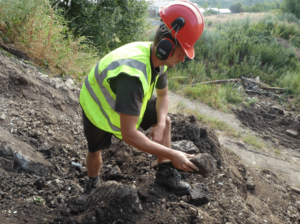How Your Soil Can Affect Planning Permissions
When you are applying for planning permission, ideally, you would like it to be accepted without any delay or setbacks. Here are some things to be aware of about your soil when you want to build on your land. So this is how your soil can affect planning permissions…
How Soil Can Affect Planning Permissions
Contamination
If your land is contaminated with substances such as heavy metals, oils or even Japanese knotweed then planning applications are more likely to be declined. If you engage in early communication with the local planning and environmental health departments, then there may be some proposals on which assessments you can undergo for your planning permission to be reconsidered.
For instance, if you have Japanese knotweed, a site survey and treatment plan is all it may take for you to be able to build on your land once the invasive species has been dealt with.

Clay Soil
Although having clay soil doesn’t mean you won’t be granted planning permission necessarily, you do have to take extra care when building on the land. This is because this soil type can shrink and swell during the various seasons throughout the year, causing the foundations of a building to become unstable. To solve this issue, make sure the structures are at a good depth.
Chalk Soil
Similar to clay soil, foundations built on this land have to be built deep as this soil is very soft and crumbly meaning that the structure will become unstable.
If you want to find out what soil type you have or as to whether it is contaminated, then you may need to have a soil test conducted. Get in contact today to find out how!
